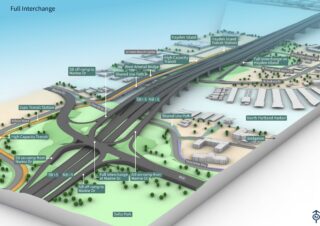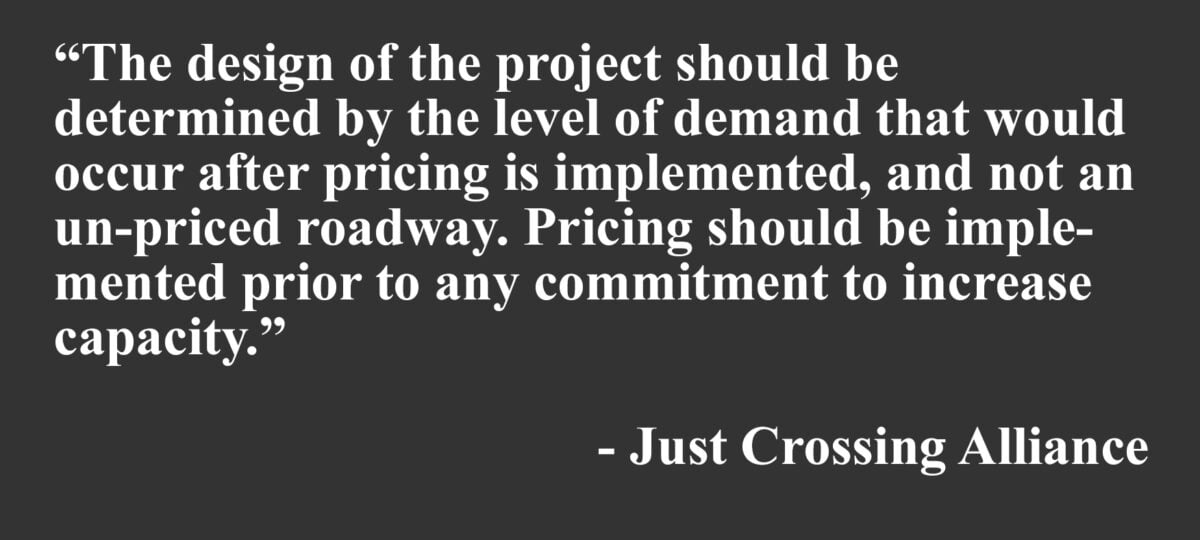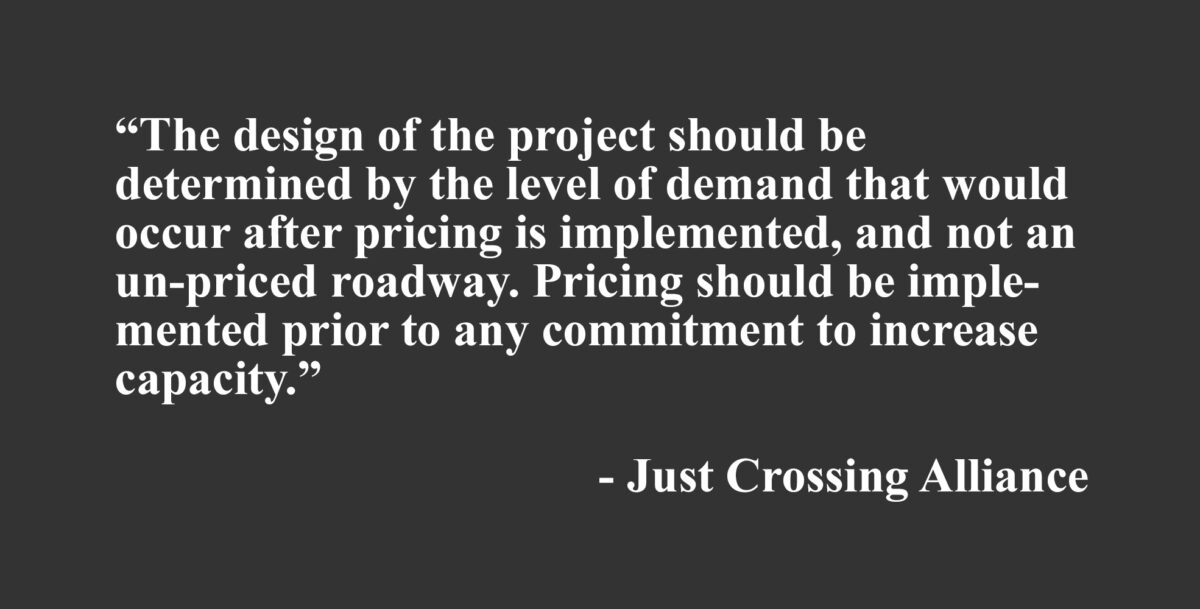A new group calling itself the Just Crossing Alliance announced its formation today to push the Interstate Bridge Replacement project in a climate-centric direction and to ensure that the project centers environmental justice.

The four founding members of the coalition come from both sides of the state lines and include Front and Centered, 1000 Friends of Oregon, the Disability Mobility Initiative, and The Street Trust. Other partners who endorse the effort include No More Freeways, Sierra Club, Portland Audubon Society and several others. The coalition is coming together around a set of shared values around how they are approaching the multi-billion-dollar megaproject.
“The Just Crossing Alliance’s advocacy around the proposed Interstate Bridge crossing is driven by an urgent need to mitigate and adapt to climate change, by strong values of environmental justice, environmental protection and social justice and by the need to balance the fiscal needs of many different transportation and other infrastructure priorities in our region,” the alliance’s website reads.
The coalition follows pushing over the past year or so from many of the same groups to ensure that the IBR is “right sized”. In November, a number of the same groups sent a letter to the IBR project team with a number of requests that they saw as central to ensuring that the bridge is “climate forward”. “The IBR must not expand the number of vehicle travel lanes, including auxiliary lanes,” it wrote.
Advertisement
The group sees the issue of road pricing, or tolls, as being a central guiding principle in what the highway will look like.
Missing from the coalition represented in that letter was a heavy Washington presence, now included in the Just Crossing Alliance in the form of Front and Centered, which describes itself as a “diverse and powerful coalition of communities of color-led groups across Washington State whose missions and work come together at the intersection of equity, environmental and climate justice”, and the Disability Mobility Initiative, a statewide advocacy group that raises awareness of the limits society puts on people who don’t drive and pushes for change. Those two organizations have been pushing to change the Washington State legislature’s priorities around transportation, and in the 2022 session they saw success with the passage of a transportation package that allocated more funding to walking, biking, and transit than any previous one in state history.
“Some communities in Washington and Oregon pay the highest price for our failure to move away from autos and oil,” Front and Centered said as an organization in the alliance’s formation announcement. “The expansion of the Columbia River Crossing will create more pollution and health harm to four of the areas with the highest Environmental Health Disparities in Washington state. Washington and Oregon States have a responsibility to reduce the existing impact on these overburdened communities. The bridge expansion proposed moves us in the wrong direction.”
Advertisement
According to the shared values outlined on their website, the group sees the issue of road pricing, or tolls, as being a central guiding principle in what the highway will look like. “The design of the project should be determined by the level of demand that would occur after pricing is implemented, and not an un-priced roadway,” the coalition’s website states. “Pricing should be implemented prior to any commitment to increase capacity.” Decisions around usage fees have been framed by the project team as occurring after project designs are selected, despite elected officials like Commissioner Jo Ann Hardesty wanting to address issues like how low income drivers will be impacted by tolls up front.
“What we’re trying to do more than anything is making sure that leaders are asking questions necessary to ensure that the Columbia River Crossing [project] doesn’t repeat itself”, Brett Morgan, Transportation and Metro Policy Manager of 1000 Friends of Oregon told me. Morgan said they don’t have a formal coalition leader right now, with decisions on how to move forward being made collaboratively.
As to why the coalition is being announced now, Morgan pointed to pivotal votes coming up at the City of Portland and Vancouver, TriMet, C-TRAN and Metro to endorse a “modified Locally Preferred Alternative”, which will likely lock in a lot of decisions around the project’s design. “We are really in the heart of the important decision making,” he said. A desire to move quickly with the design process so that construction can start in 2025 has led to a timeline many elected officials have expressed frustration with. In seeking a seat at the table, the Just Crossing Alliance is attempting to ensure that the speed up timeline doesn’t leave anyone behind.





